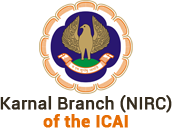80CCC – Contribution to Pension Fund of LIC
80D – Medical Insurance premia
80DD – Maintenance including medical treatment of handicapped dependent
80DDB – Medical treatment, etc.
80-E – Repayment of loan taken for higher education
80G – Certain Donations to Charitable trusts of institutions for charitable purpose.
80GG – Rent Paid by an Assessee
80GGA – Donations for scientific research or rural or urban development
80-HH – Deduction in respect of profits and gains from newly established industrial undertakings or hotel in backward areas.
80-HHA – Deduction in respect of profits and gains from newly established small scale industrial undertakings in certain areas.
80-HHB – Deduction in respect of profits and gains from projects outside India.
80-HHBA – Deduction in respect of profits and gains from housing projects in certain areas.
80-HHC – Deduction in respect of profits and gains from export of goods outside India.
80-HHD – Deduction in respect of earning in foreign exchange
80-HHE – Deduction in respect of profit from export of computer software, etc.
80-HHF – Deduction in respect of profit from export or transfer of film software, etc.
80-IA – Deduction in respect of profit and gains of certain industrial undertakings or enterprises, etc.
80-IB – Deduction in respect of profit and gains of certain industrial undertakings other than infrastructure development undertakings, etc.
80-JJA – Profits and gains from business of collecting and processing biodegradable waste.
80-JJAA – Deduction in respect of employment of new workmen.
80-L – Interest on securities, dividends, etc.
80 O – Royalties, commissions, fees for professional services etc, earned in convertible foreign exchange
80-P – Certain income of Co-operative Societies
80-R, 80-RR and 80-RRA – Income from foreign sources.
80-U – Income of handicapped Assessee.




